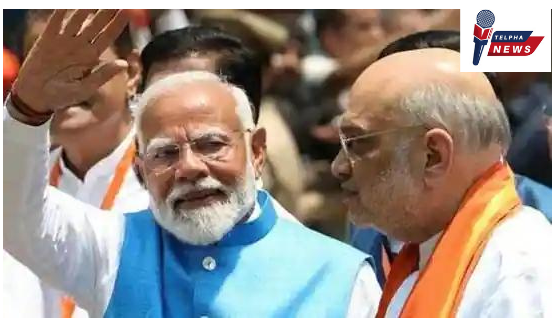
Commemorating ‘Samvidhan Hatya Diwas’: A Reflection on India’s Dark Period of Emergency
The declaration of June 25 as ‘Samvidhan Hatya Diwas’ marks a pivotal moment in India’s contemporary history, reflecting on the tumultuous period of Emergency imposed by the Indira Gandhi-led Congress government on June 25, 1975. This day, designated by the current administration, is set aside to remember the violations of democratic principles and the suffering endured by many during this 18-month period.
The Historical Context of the Emergency
The Emergency, declared by then Prime Minister Indira Gandhi, is often seen as a period where democratic norms and constitutional rights were severely compromised. The government, citing internal disturbances, imposed a state of emergency that led to the suspension of civil liberties, media censorship, and the arrest of political opponents without trial. This era is frequently described as one of the darkest chapters in India’s democratic history, where the foundations of the Constitution were undermined.
Why ‘Samvidhan Hatya Diwas’?
Prime Minister Narendra Modi and Union Home Minister Amit Shah have articulated the significance of observing June 25 as ‘Samvidhan Hatya Diwas’. According to them, this day serves as a stark reminder of the dangers posed to democracy when constitutional values are subverted. Prime Minister Modi emphasized on social platform X that commemorating this day would honor those who suffered during the Emergency and remind future generations of the critical importance of upholding democratic principles.
Recent Political Reactions
The decision to mark June 25 annually as ‘Samvidhan Hatya Diwas’ has reignited discussions about the Emergency, particularly following the constitution of the 18th Lok Sabha after the 2024 elections. In his first address after being re-elected as Lok Sabha Speaker, Om Birla condemned the Emergency, reinforcing the sentiment that such an infringement on democratic rights should never be repeated.
President Droupadi Murmu, in her address to a joint session of Parliament, also highlighted the resilience of the Indian Constitution, noting that it has withstood various challenges, including the Emergency. Her statement underscores the ongoing relevance of protecting constitutional integrity.
Statements from Key Political Figures
Union Home Minister Amit Shah has been vocal about the implications of the Emergency, describing it as an act that strangled the soul of Indian democracy. He stated, “On 25 June 1975, the then Prime Minister Indira Gandhi, showing her dictatorial mindset, strangled the soul of Indian democracy by imposing emergency in the country. Lakhs of people were jailed without any reason and the voice of the media was suppressed.”
Union Minister and BJP President JP Nadda echoed similar sentiments, calling June 25, 1975, a “black day” in Indian history. He criticized the imposition of the Emergency as a blatant violation of democratic principles and a severe infringement on the rights enshrined in the Constitution.
The Opposition’s Response
The Congress party has responded critically to the move, labeling the day as politically motivated. They argue that the current government’s decision to observe ‘Samvidhan Hatya Diwas’ is a tactic to divert attention from other pressing issues. A notable reaction from the Congress was to propose June 4 as ‘Modi-Mukti Diwas,’ emphasizing their stance against the current administration’s policies.
The Significance of Remembrance
Observing ‘Samvidhan Hatya Diwas’ serves multiple purposes. It is not only a day of remembrance for those who suffered during the Emergency but also a potent reminder of the importance of safeguarding democratic values and constitutional rights. It reinforces the idea that vigilance is necessary to prevent the recurrence of such a period in India’s history.